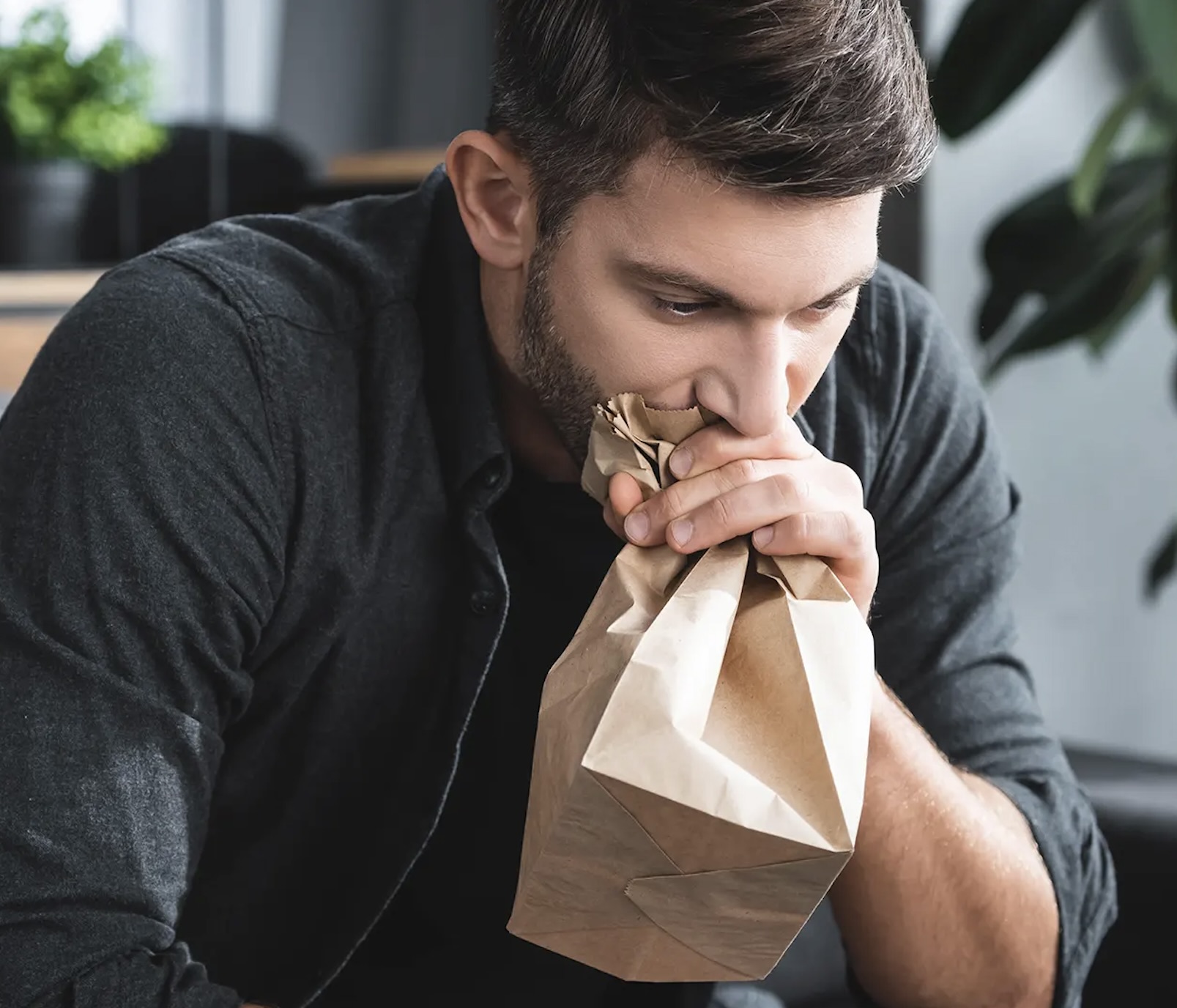Hiccups: Symptoms, Causes, Treatment
What are the symptoms of hiccups?
Hiccups are involuntary contractions of the diaphragm muscle followed by quick closure of the vocal cords, which produces the characteristic “hic” sound. Hiccups are usually harmless and temporary, but they can be persistent or occur with other symptoms in some cases. Common symptoms of hiccups include:
- Repetitive “hic” sound: This is the main symptom of hiccups, caused by the sudden closure of the vocal cords.
- Diaphragm contractions: You may feel a slight tightening or spasm in your chest or abdomen before each hiccup.
- Brief pause in breathing: Some people may experience a brief pause in breathing during a hiccup episode.
- Uncontrollable movement: Hiccups may cause slight movements or jerks in the chest or abdomen.
- Rarely, discomfort or pain: In some cases, hiccups may be accompanied by discomfort or pain in the chest or abdomen, although this is less common.
Hiccups usually resolve on their own within a few minutes to hours and are not typically a cause for concern. However, persistent or recurrent hiccups that last for more than 48 hours or are accompanied by other symptoms may indicate an underlying medical condition and should be evaluated by a healthcare provider.
What are the causes of hiccups?
Hiccups are caused by involuntary contractions of the diaphragm muscle, followed by quick closure of the vocal cords, which produces the characteristic “hic” sound. The exact cause of hiccups is not always clear, but they can be triggered by a variety of factors, including:
- Eating or drinking too quickly: This can cause air to enter the stomach and irritate the diaphragm, leading to hiccups.
- Swallowing air: This can also irritate the diaphragm and trigger hiccups.
- Carbonated beverages: The bubbles in carbonated drinks can expand in the stomach and trigger hiccups.
- Overeating: Eating large meals or fatty foods can distend the stomach and irritate the diaphragm.
- Sudden changes in temperature: Drinking hot or cold beverages quickly can sometimes trigger hiccups.
- Emotional stress or excitement: Strong emotions can sometimes lead to hiccups.
- Gastroesophageal reflux (GERD): Acid reflux can irritate the diaphragm and trigger hiccups.
- Certain medications: Some medications, such as steroids, benzodiazepines, and opioids, can sometimes cause hiccups as a side effect.
- Alcohol consumption: Drinking alcohol can irritate the stomach and esophagus, leading to hiccups.
- Medical conditions: In rare cases, hiccups may be a symptom of an underlying medical condition, such as pneumonia, meningitis, or a neurological disorder.
Most cases of hiccups are short-lived and resolve on their own. However, persistent or recurrent hiccups that last for more than 48 hours or are accompanied by other symptoms should be evaluated by a healthcare provider to rule out any underlying medical conditions.
What is the treatment for hiccups?
Hiccups often go away on their own and do not require medical treatment. However, if hiccups are persistent or bothersome, there are several home remedies and medical treatments that may help alleviate them. Here are some common approaches:
- Breathing techniques: Holding your breath, breathing into a paper bag, or breathing slowly and deeply may help relax the diaphragm and stop hiccups.
- Drinking water: Sipping water slowly or gargling with water may help stimulate the vagus nerve and stop hiccups.
- Swallowing granulated sugar: This may help irritate the esophagus and stimulate the vagus nerve, stopping hiccups.
- Stimulating the back of the throat: Gently rubbing or pulling on the back of the tongue or swallowing a teaspoon of honey may help stop hiccups.
- Gag reflex stimulation: Gently stimulating the gag reflex by touching the back of the throat with a cotton swab may help stop hiccups.
- Acupressure: Applying pressure to the area between the upper lip and nose (known as the “LI4” or “Hegu” point) may help stop hiccups.
- Medications: In some cases, medications such as chlorpromazine, metoclopramide, or baclofen may be prescribed to help stop hiccups.
- Treatment of underlying medical conditions: If hiccups are caused by an underlying medical condition, such as GERD or a neurological disorder, treating the underlying condition may help alleviate hiccups.
It’s important to note that these remedies may not work for everyone, and if hiccups persist for more than 48 hours or are accompanied by other symptoms, it’s important to seek medical attention to rule out any underlying medical conditions.




